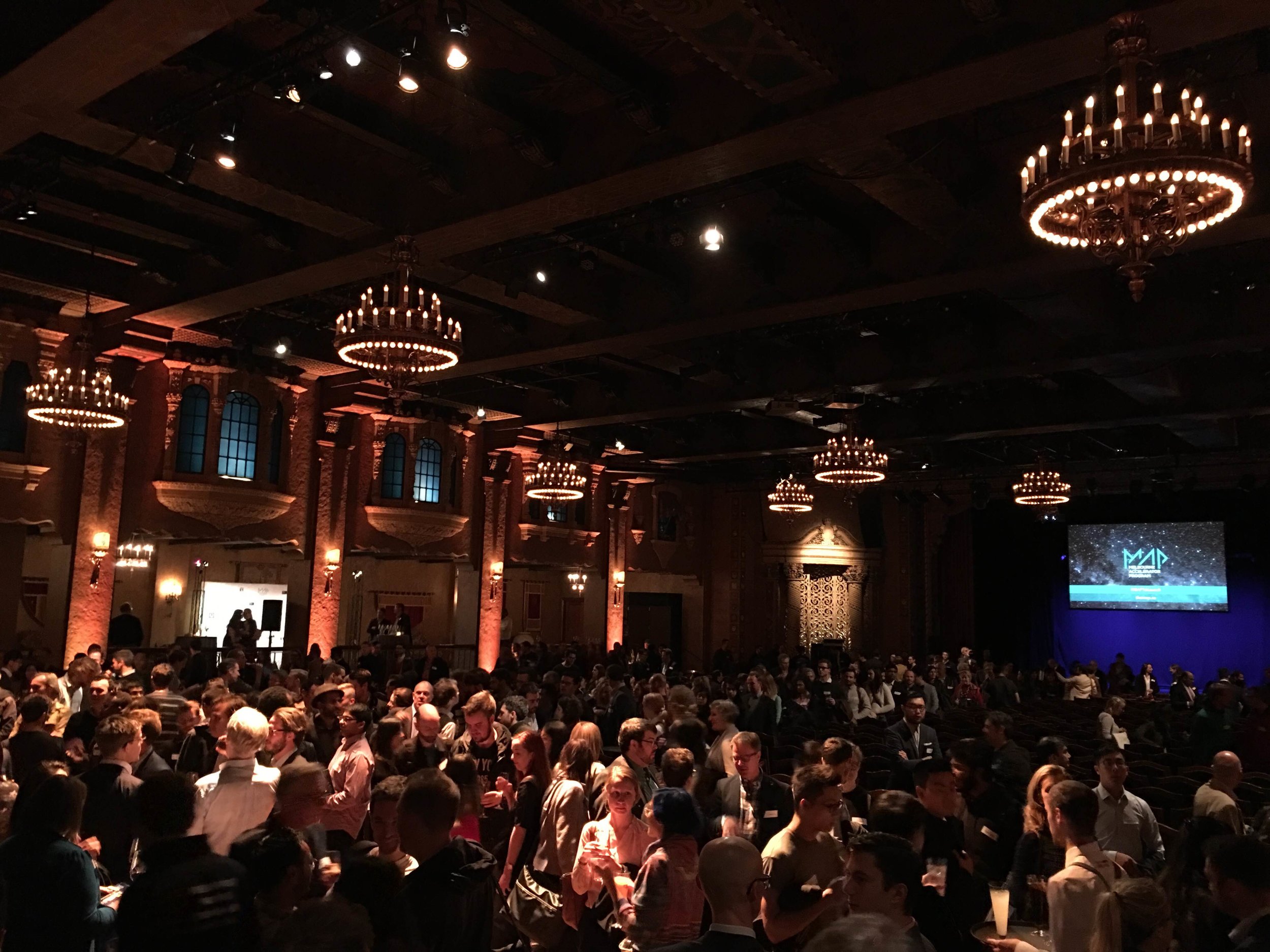The Tech Revolution in Regional Australia, and Opportunities for Future Growth
Here’s an article I wrote in March 2017 for StartupsInnovation.com. You will notice this was pre-2018 Australian leadership spill! I have a real love for Queensland, and regional Australia’s potential to be world leaders in innovation and creativity. This article has heaps of resources and events to be aware of if you’re keen to get started with your big idea in Queensland, whether in the big city or further out. Share your thoughts below.
There's a tech revolution Down Under- and we have ideas on where the next opportunities will be.
As a frequent city-hopper throughout Australia, we've noticed that the tech revolution isn't solely limited to our most famous capital cities.
Brisbane skyline at night. Louise Teo
The rural towns dotting the 2300km expanse of the Great Barrier Reef have long been subject to “boom or bust” economic conditions in Australia. With the recent Australian mining sector downturn affecting once-bustling cities throughout Central and Northern Queensland, the time is ripe for entrepreneurialism to take place.
The Australian Federal Government's Innovation Agenda has helped foster an environment for numerous innovation events. One such event coming up is Myriad, the global entrepreneurs’ conference to be held in Brisbane, Queensland’s capital, at the end of March. Bringing speakers from TechCrunch, Estonia, Western Europe and rural Queensland to the city, the event promises to help connect and inspire attendees as Australia’s answer to SXSW.
Myriad’s timing coincides with the World Science Festival, which will host Hack The Reef, the world’s first hackathon dedicated to the Great Barrier Reef. Held in Townsville, one of Northern Queensland’s largest Reef gateposts, Hack the Reef will bring participants together to brainstorm solutions for the Reef’s rapid bleaching crisis, with global warming sending water temperatures 1-2 degrees Celsius higher than usual and irreversibly bleaching the beautiful coral. Hack the Reef will send winners to Myriad, and help boost tech and entrepreneurial skills in a region not known for its Opera House or laneway coffee spots.
Great Barrier Reef from above! Louise Teo
Maker spaces and coworking centres have also opened up in Mackay, Cairns and Townsville. Startup Mackay is a hub for the sugar cane city and former mining hub now focusing on tourism. The Assisted Devices Hackathon will be held in Mackay, Toowoomba and Townsville later this year, with support from Advanced Manufacturing Queensland helping to re-energise Queensland manufacturing and engineering. theSPACE Cairns and Canvas Coworking in Toowoomba also host startup events and coworking space for locals and visitors.
Additionally, Australia’s largest corporate startup accelerator Slingshot has announced a presence in Cairns this year. It will dedicate funding and resources to projects focusing on travel, hospitality and entertainment in this city of 160,000 people which hosts international guests such as Elton John. Slingshot is known for running one of Australia’s largest health-tech accelerators, and currently has Australia’s first Human Resources Tech accelerator open for applications to be the next Freelancer or similar.
Finally, small business groups in these towns continue to host events for local startups and small-to-medium enterprises (SMEs) alike. Small Biz Big Future has been held in Cairns for several years’ running, bringing together web developers, agricultural, marketing and legal experts in the region to deliver Top 3 Business Tips for attendees.
Advance Queensland also completed a regional tour featuring 6 of Queensland's most successful entrepreneurs, including Shark Tank Australia's Steve Baxter and We Are Hunted's Stephen Phillips, visiting ten rural cities to share their experiences with locals.
How else can regional towns pivot from existing business models and upskill in entrepreneurship? Currently, the options for rural business owners and aspiring entrepreneurs are to attend local events or education providers; otherwise, if they can afford it, to relocate to one of the capital cities. In our opinion, education shouldn't be limited to local TAFE centres and universities, which are often costly and not suitable for time-poor owner-operators. It's also worthwhile remembering that many small business owners are successful despite not completing school, or not having a strong tech culture within an Indigenous Australian community. Private tech skill educators such as General Assembly and Academy Xi are based in major capitals such as Melbourne and Sydney (with GA opening in Brisbane). These cities are doing their bit for entrepreneurship, but are becoming saturated with choice of events. Surely such schools could also aim to broaden their reach to rural areas by offering free or paid video access to classes and talks.
In times of crisis, there is a long-held resilience demonstrated by local farmers, retailers, and other small business owners, with communities devoted to buying local. Much can be learnt from business owners who have dealt with cyclones, droughts, banana plantation destruction and international trade adjustments. Perhaps a platform needs to be developed for giving these stalwart regional business owners a chance to share their lessons virtually with young and tech-savvy entrepreneurs across Australian cities. This could help introduce a new revenue stream to such business owners, in a valuable collaborative effort of Ideas Exchange.
Australia's current Prime Minister, Malcolm Turnbull, a former tech entrepreneur himself, has tried to shine a light upon regional innovation. Taking in rural Queensland towns such as Bundaberg and Rockhampton last year, Prime Minister Turnbull was impressed with technologies such as drones used by farmers for crop surveillance and pest control. As mentioned during his visit, it's important to remember that entrepreneurs are not just city-based friends in T-shirts coding in a garage for fun. The real need for tech and entrepreneurial skills comes from those who are geographically isolated and time- and resource-poor.
Ongoing support for local businesses and education providers, whether rural or metropolitan, will continue to drive the future of Australian innovation. We'd be glad to hear your thoughts on this article and other ideas you may have.








